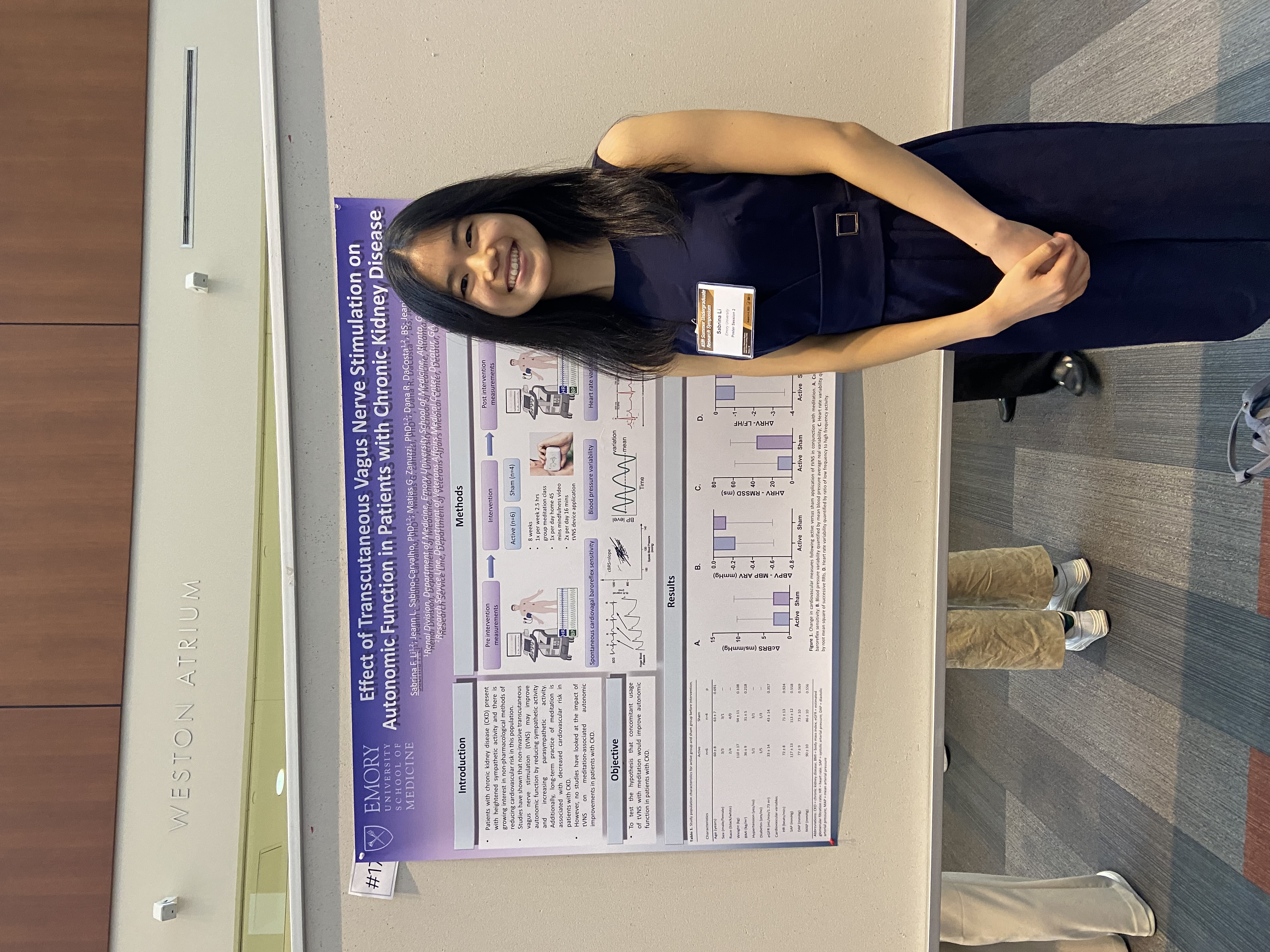Research Projects
Exercise Pressor Responses in Chronic Kidney Disease
Patients with chronic kidney disease (CKD) have poor exercise tolerance which contributes to increased cardiovascular risk in this patient population. We have shown that CKD patients have exaggerated increases in blood pressure and sympathetic nerve activity during exercise which could contribute to exercise intolerance and cardiovascular risk. Ongoing work includes elucidating the mechanisms of the augmented exercise pressor reflex, and examining mechanisms underlying increased neurovascular transduction of sympathetic nerve activity during physical activity in CKD patients.
Therapeutic Interventions targeting Sympathetic Overactivity in Chronic Kidney Disease (CKD)
We previously showed that treatment with tetrahydrobiopterin (BH4), an essential cofactor for the function of nitric oxide synthase (NOS), improves resting muscle sympathetic nerve activity (MSNA) and measures of vascular stiffness in CKD patients. Our laboratory conducts randomized controlled clinical trials testing the potential benefits of nonpharmacologic (exercise training, meditation, device-guided slow breathing) and pharmacologic (BH4, bicarbonate supplementation) therapeutic interventions on hemodynamic, autonomic, and neurovascular measures both at rest and during exercise.
Sympathetic Regulation in Post-traumatic Stress Disorder (PTSD)
Patients with PTSD are at increased risk of developing hypertension and cardiovascular disease. The mechanisms underlying this increased risk in PTSD remain unclear. Our laboratory is examining the potential roles of abnormal sympathetic nerve reactivity, arterial baroreflex sensitivity, inflammation, and parasympathetic activity at rest and during mental stress in this patient population.
Therapeutic Interventions targeting Sympathetic Overactivity in PTSD
Our laboratory conducts randomized, double-blinded, placebo-controlled trials testing the potential benefits of both short-term and long-term interventions on autonomic function, baroreflex sensitivity, hemodynamics, inflammation, as well as PTSD symptoms. Current trials include the acute and long-term effects of device guided slow breathing, and angiotensin II receptor blockade using losartan, on physiologic measures and symptoms in PTSD.
Publications
View the lab publications on the NCBI website.
Contact
Emory University Renal Division
Woodruff Memorial Research Building
1639 Pierce Drive, WMB 3300
Atlanta, GA 30322
Email Jeanie
Career Opportunities
Seeking Postdoctoral Researcher at Emory University School of Medicine
Two postdoctoral research positions are available in the human physiology laboratory of Dr. Jeanie Park at Emory University School of Medicine. The laboratory is housed within the Emory University main campus, and at the Atlanta VA Medical Center Clinical Studies Center. Dr. Park’s research focuses on the regulation of the sympathetic nervous system in humans at high cardiovascular risk. Funded projects include investigations of sympathetic control during exercise in chronic kidney disease, mechanisms of intradialytic hypertension in end-stage renal disease, and sympathetic regulation during stress in patients with stress-related disorders such as post-traumatic stress disorder (PTSD). The lab also engages in clinical trials testing benefits of pharmacologic and nonpharmacologic interventions on sympathetic control in patients with CKD and PTSD. The successful candidate will have an M.D., or Ph.D., or other doctoral degree in physiology or a related field. Experience with human physiology research techniques, ultrasound or microneurography is desirable but not essential. Salary is commensurate with NIH guidelines. Interested candidates should forward inquiries, along with a CV, statement of research interests, and contact information for three references to Jeanie Park, MD.





































